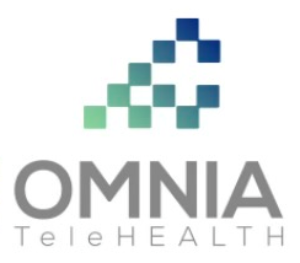Antibiotics have revolutionized medicine, saving countless lives since their discovery. Yet today, their role is often misunderstood. As a patient or caregiver, understanding when and how antibiotics work can make a significant difference in treatment outcomes and help preserve their effectiveness for future generations. This guide explores the history, science, and common misconceptions about antibiotics, and what you can do to ensure their responsible use.
A Brief History of Antibiotics
Antibiotics began reshaping medicine with the discovery of penicillin by Alexander Fleming in 1928. Before then, even minor infections could prove fatal. Fleming’s breakthrough launched the antibiotic era, making it possible to treat once-deadly bacterial diseases like pneumonia and strep throat. By the mid-20th century, medications such as streptomycin and tetracycline had further expanded treatment options, enabling safer surgeries, improved cancer therapies, and lower infection-related deaths.
Today, antibiotics remain central to modern medicine, yet their overuse and misuse have led to a pressing global concern: antibiotic resistance. This means that some bacteria have adapted to survive even our strongest medications, rendering once-reliable treatments ineffective.
Myths vs. Facts: Understanding Antibiotic Use
Myth: Antibiotics treat viral infections like colds and the flu. Fact: Antibiotics only treat bacterial infections. Viruses, like those causing colds, flu, and COVID-19, require different treatments or simply supportive care. Taking antibiotics for viral illnesses does more harm than good, increasing your risk of side effects and contributing to antibiotic resistance.
Myth: You should stop taking antibiotics once you feel better. Fact: Always complete the full course prescribed by your provider. Stopping early allows surviving bacteria to regrow, potentially leading to a stronger, more resistant infection.
Myth: All antibiotics work the same. Fact: Different antibiotics target different bacteria. That’s why providers carefully select a specific antibiotic based on your condition, history, and lab results. Misuse—such as using someone else’s prescription—can worsen resistance and delay recovery.
The Growing Threat of Antibiotic Resistance
Superbugs like MRSA and drug-resistant tuberculosis are not science fiction—they’re real threats resulting from antibiotic overuse in both healthcare and agriculture. The Centers for Disease Control and Prevention (CDC) estimates that at least 2.8 million antibiotic-resistant infections occur in the U.S. each year, causing over 35,000 deaths.
But the good news? You can help. Avoid demanding antibiotics unnecessarily. Talk openly with your provider about your symptoms and whether antibiotics are truly needed. At Omnia Telehealth, our experienced providers tailor treatments to your specific health needs, promoting responsible antibiotic use and optimal outcomes.
When Are Antibiotics Appropriate?
Antibiotics are appropriate when:
- You have a confirmed bacterial infection (like strep throat, urinary tract infection, or bacterial pneumonia).
- You’re undergoing surgery with a high risk of infection.
- You have a weakened immune system and are at high risk for bacterial complications.
They are not appropriate for:
- Viral infections (flu, colds, most sore throats).
- Non-specific symptoms without bacterial confirmation.
Your provider at Omnia Telehealth considers factors like your medical history, symptoms, and diagnostic tests before prescribing antibiotics, ensuring the treatment is truly warranted.
How Dosage and Duration Matter
Taking the right dose for the right amount of time ensures the bacteria are fully eliminated. Too short a course might leave some bacteria alive, potentially creating resistant strains. Conversely, overly long courses can increase side effects and promote resistance. Omnia’s providers follow the latest clinical guidelines to prescribe antibiotics safely and effectively.
Innovations in Antibiotic Science
New antibiotics are being developed to target resistant bacteria in novel ways. Promising discoveries like teixobactin and advances in nanotechnology-based drug delivery offer hope for the future. Yet, prevention remains our best defense. Vaccinations, hand hygiene, and responsible antibiotic use can reduce the need for these drugs altogether.
Partnering with Providers for Better Outcomes
When consulting with a provider—virtually or in person—ask:
- Do I really need antibiotics?
- What are the risks and benefits of this treatment?
- What should I expect if I don’t take antibiotics?
- Are there non-antibiotic alternatives?
Omnia Telehealth’s team empowers you with personalized care that minimizes unnecessary prescriptions while addressing your health concerns effectively.
Your Role in Responsible Antibiotic Use
By using antibiotics only when necessary and as directed, you protect yourself and others from potential harm. Avoid leftover medications, don’t self-prescribe, and never share prescriptions. Each responsible choice contributes to a healthier future.
Schedule a Virtual Visit
Need to speak with a provider about symptoms or treatment options? Book your telehealth appointment with Omnia Telehealth today. Our licensed providers offer fast, convenient, and evidence-based care from the comfort of your home.
Frequently Asked Questions (FAQ)
Q: Can I take antibiotics just in case my illness gets worse? A: No. Taking antibiotics “just in case” can harm your body and contribute to resistance. Your provider will determine if antibiotics are appropriate based on your symptoms and medical history.
Q: Are there side effects to taking antibiotics? A: Yes. Common side effects include stomach upset, diarrhea, and allergic reactions. Some antibiotics can also disrupt your gut microbiome or interact with other medications.
Q: What is the difference between narrow-spectrum and broad-spectrum antibiotics? A: Narrow-spectrum antibiotics target specific bacteria, while broad-spectrum antibiotics affect a wide range. Whenever possible, providers prefer narrow-spectrum drugs to minimize disruption to healthy bacteria and reduce resistance.
Q: Why can’t I save antibiotics for later use? A: Leftover antibiotics may not be appropriate for future illnesses, and taking the wrong type or dose can delay proper treatment and increase resistance risks.
Q: How does telehealth help with responsible antibiotic use? A: Virtual visits allow providers to evaluate your symptoms, recommend testing if needed, and prescribe appropriately—all without overprescribing. Omnia Telehealth’s protocols align with the latest stewardship guidelines to ensure safe, effective care.
By educating yourself about antibiotics and working with knowledgeable providers, you can contribute to a safer, healthier healthcare system. Visit Omnia Telehealth’s Services to learn how we support your wellness through expert-led virtual care.


